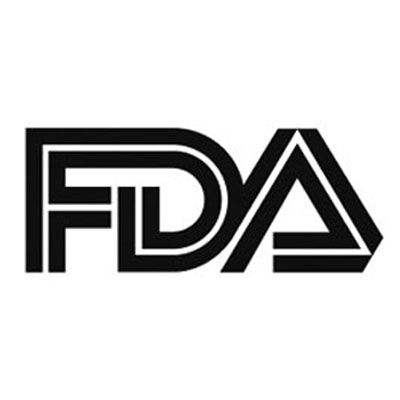Fast Track Designation Granted to Seviprotimut-L Vaccine for Adjuvant Use in Stage IIB/IIC Melanoma
With a Fast Track designation, the development of seviprotimut-L will be facilitated and expeditiously reviewed by the FDA to address an unmet medical need for patients with stage IIB and IIIC melanoma,

Adjuvant seviprotimut-L, a melanoma cancer vaccine intended to improve recurrence-free survival (RFS) in patients with stage IIB/IIC melanoma post-resection, has been granted a Fast Track designation by the FDA, drug developer, Polynoma, LLC, announced.1
"The Fast Track designation by the FDA provides further validation of seviprotimut-L as a potential new and important cancer vaccine for patients with localized melanoma," said Alan Yu, chairman of Polynoma and vice president and chief operating officer at CK Life Sciences. "We look forward to advancing seviprotimut-L in a pivotal trial as an adjuvant treatment of melanoma."
Seviprotimut-L was evaluated in a 3-part, multicenter, double-blind, placebo-controlled, phase 3 clinical trial (MAVIS, NCT01546571), for which final analysis data were presented during the 2020 American Society of Clinical Oncology Virtual Scientific Program. The study randomized 347 patients 2:1 to receive either seviprotimut-L 40 mcg or placebo, which was administered by subcutaneous injection 5 times every 2 weeks, then 4 times monthly, followed by 9 times every 3 months. In part A of the study, 99 patients were assessed for safety and biological activity with seviprotimut-L versus placebo. In Part B1, RFS was assessed, and in Part B2, the study’s coprimary end points of survival and RFS were evaluated.2
The part A analysis showed that seviprotimut-L is well tolerated with similar treatment-emergent adverse events (AEs) occurring in the seviprotimut-L arm and the placebo arm. With seviprotimut-L, 96% of patients experienced AEs, 12% of which were grade 3, and 70% of which were treatment-emergent. Placebo led to AEs in 97% of patients in the placebo arm, 9% of which was grade 3, and 73% of which were treatment-emergent. No grade 4/5 serious AEs were observed in the study. Treatment discontinuation occurred in 0.9% of patients in each arm, and 0.4% of treatment-emergent AEs led to discontinuation in the seviprotimut-L.
In Part B1, the results of the intent-to-treat analysis did not show a significant improvement in RFS in the overall population, but across various subgroups, RFS was higher in the seviprotimut-L arm. Specifically, the RFS with seviprotimut-L was not reached (NR) versus placebo (95% CI, 30.1-NR) in the overall population (HR, 0.88; 95% CI, 0.629-1.233; P =.4600). Among the stage IIB/C subgroup, the median RFS was NR with the vaccine (95% CI, 40.1-NR) compared with 35.4 with placebo (95% CI, 14.8-NR; HR, 0.65; 95% CI, 0.366-1.166; P =1462). The longer RFS trend with the vaccine was HR 0.65 (0.37-1.17), and for overall survival, the trend was HR 0.37 (0.13-1.06).
Based on prior knowledge that age can interfere with immune competence, investigators led by CL Slingluff also assessed outcomes of the stage IB/C patients by age and treatment. According to baseline characteristics, the median age in the seviprotimut-L was 60 years old, and in the placebo group, the median age was 61 years old. In the seviprotimut-L and placebo arm, respectively, these patients were also 35% and 32% female, 99% and 100% White, 4.1% and 2.7% Hispanic, 34% and 27% had an extremity tumor site, 37%, and 32% had a head and neck tumor site, 26%, and 41% had a trunk tumor site, and the ECOG performance status was 0 in 86.5% and 86.5% of patients.
For the stage IIB/C group, the RFS by age was not yet reached in the vaccine group compared with 41.8 (95% CI, 14.7-NR) in the placebo arm (HR, 0.31; 95% CI, 0.117-0.842; P = 0.149) for patients <60 years. The RFS for patients ≥ 60 was 30.7 (95% CI, 15.5-NR) in the seviprotimut-L arm compared with 35.4 (95% CI, 11.2-NR) in the placebo arm (HR, 1.08; 95% CI, 0.518-2.231; P =.8450).
Overall, the study concluded that patients with IIB/C melanoma, patients under the age of 60, and those with ulcerated melanoma may derive RFS benefit from the seviprotimut-L vaccine.
With a Fast Track designation, the development of seviprotimut-L will be facilitated and expeditiously reviewed by the FDA to address an unmet medical need.
References:
1. Polynoma receives FDA fast track designation for its melanoma cancer vaccine seviprotimut-l. News release. Polynoma, LLC. June 23, 2020. Accessed June 23, 2020. https://prn.to/37SFz0F.
2. Slingluff CL, Blumenstein B, Andtbacka RHI, et al. Final analysis of relapse-free survival in a multicenter, double-blind, placebo-controlled trial of seviprotimut-L polyvalent melanoma vaccine after resection of high-risk melanoma. J Clin Oncol. 2020: 38; (suppl; abstr 10017). doi: 10.1200/JCO.2020.38.15_suppl.10017